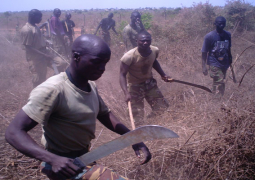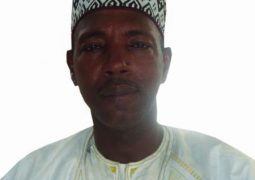As trafficking in illicit drugs and organized crime becomes a global phenomenon with West Africa not an exception, drug law enforcement officers and experts from the Economic Community of West African States (ECOWAS) are meeting in
The expert forum, under way at the Jerma Beach Hotel, brought together anti-drug officials from all ECOWAS member states, including the host
The forum was aimed at reviewing and adopting a framework for regional West African Drug Law Enforcement Joint Operations.
It seeks, among others, to examine the current challenges facing the region, including the often-evolving modus operandi of traffickers and their associates. Also, to identify best practices that have shown significant results elsewhere; and, to recommend for adoption, at the regional level, a framework for efficient, reliable and rapid cooperation in drug law enforcement. This framework should be one that best suits our West African environment so as to achieve the common goal of ridding West Africa of drug trafficking and its consequences on people and institutions.
Youth and Sports Minister Sheriff Gomez declared the sub-regional meeting open, on behalf of the Secretary General and Head of the Civil Service, Dr Ngogu Bah.
Dr. Bah in his speech described the West African Joint Operation (WAJO) that was set up by the Nigerian Drug Law Enforcement Agency (NDLEA) in collaboration with the United States Drug Enforcement Administration (USDEA) as "a very good initiative".
He stated that this should be revitalized, and further strengthen throughout the region, to reduce or eradicate the supply of illicit drugs in the sub-region, and further foster cooperation among drug law enforcement agencies in West Africa, especially in terms of information sharing on drugs and other related crimes.
"Since years ago, the world has been facing numerous challenges, and continues to face the same challenges in the fight against drug abuse and illicit drug trafficking, which is a devastating and persisting phenomenon, which until today no one nation or continent can boast to have eradicated," Bah added.
According to him, the recent seizure of more than two tonnes of cocaine in the country is unprecedented in the history of the National Drug Enforcement Agency of the
"The impact of drugs in West Africa is far from minor, and the results have been devastating to the extent that, in many cases, development has been stunted, stalled or has even regressed in some places," he said, adding that the apparent short-term gains are illusory, because the lasting damage far outweighs them all.
The
SG Bah urged all participants from the various drug law enforcement agencies to come up with current drug situations in their respective countries, so as to exchange ideas and information in relation to drugs and other related crimes, which will no doubt be of great importance in the activation of WAJO.
Addressing the delegates, the representative of the ECOWAS Commission, Dr Adrienne Y Diop, Commissioner, Human Development and Gender, stated that West African has increasingly being used as a transit area for drug trafficking and related organized crimes, often to locations beyond the West African region and, as a result, drug trafficking has become a heavy burden on society as a whole.
In response to these threats, she noted, ECOWAS heads of state and government have adopted a Political Declaration in 2008 to vigorously combat this global menace. She revealed that the ECOWAS Commission has prepared an Operational Plan to support the implementation of the ECOWAS Regional Action Plan also endorsed by ECOWAS leaders.
"The operational plan accords large priority to drug law enforcement capacity building, improvement of inter-state cooperation and harmonization of legislations and legal practices among ECOWAS member states, as well as enhanced capacity and coordination in the ECOWAS Commission," she said.
Dr. Diop further noted that this was to ensure that they live up to the challenges of modern times with the assistance of partners, such as UNODC, INTERPOL and WCO, as well as civil society organizations and experts in the drug field.
"While the region may have dedicated law enforcement institutions and personnel to combat drug trafficking, it is generally accepted that cooperation among these agencies across the region, especially at operational level, still requires serious efforts if joint operations in drug trafficking and organized crime are to be successful in the region," she added.
Dr. Diop also expressed the view that enhanced regional cooperation, coordination and harmonization can greatly improve the effectiveness of law enforcement operations, particularly when targeted at our airports, seaports and land borders, which are often porous.
Moreover, Dr. Diop continued, law enforcement agencies and personnel in individual West African countries are constrained by a host of other factors, the least of which are intelligence gathering and management, and up-to-date equipment and logistics to confront well-organized and structured trafficking groups and networks operating with the latest high tech and rapidity.




